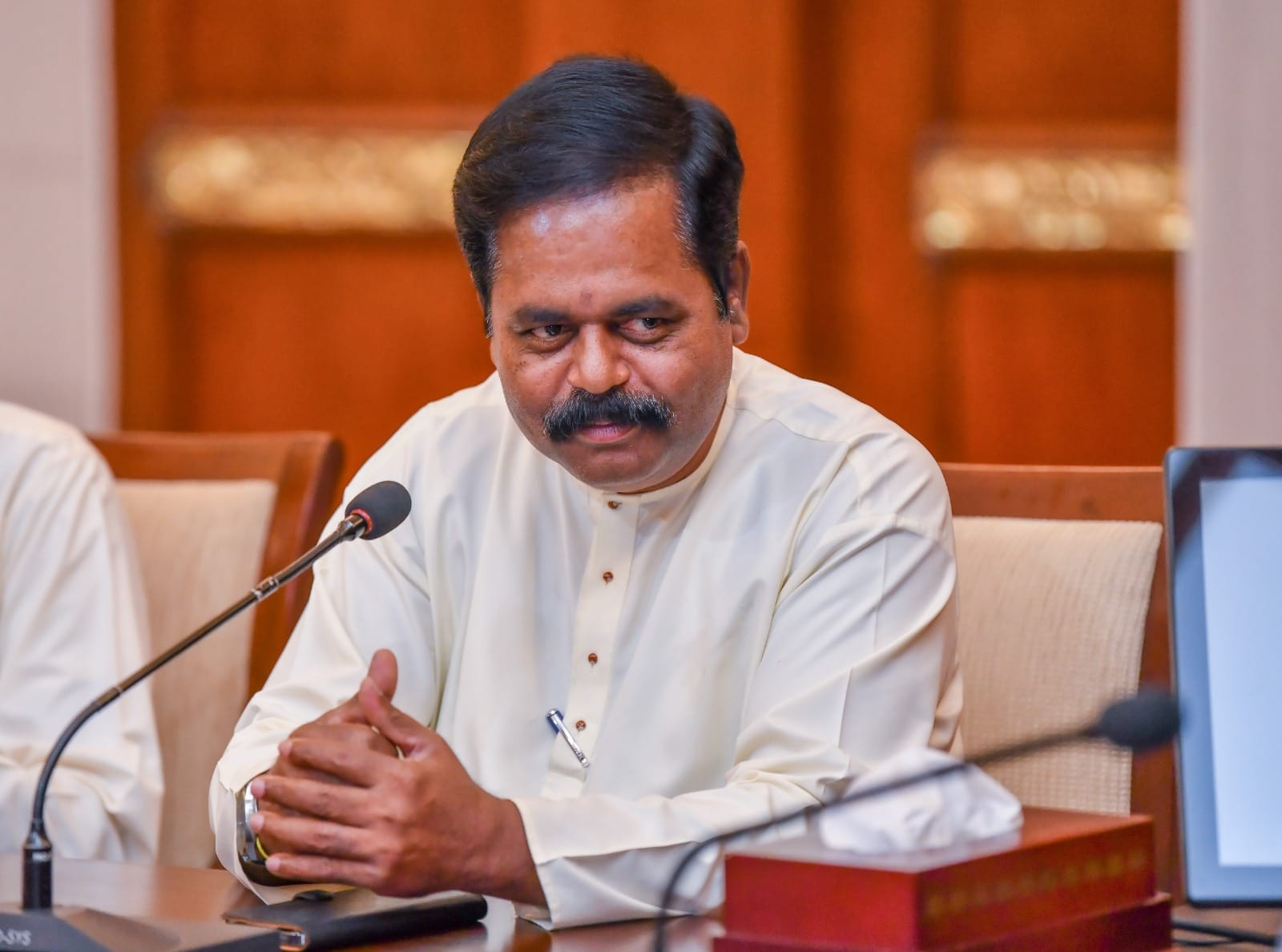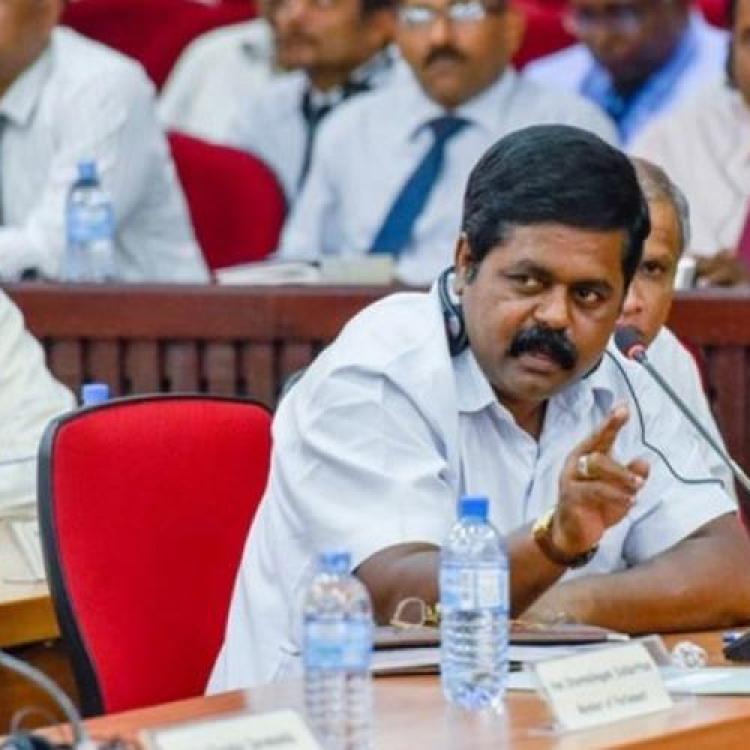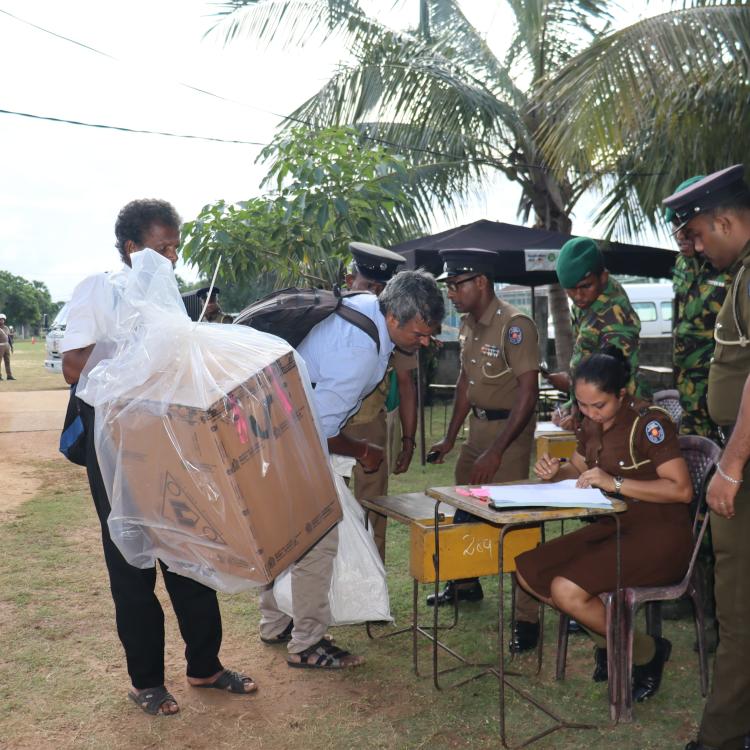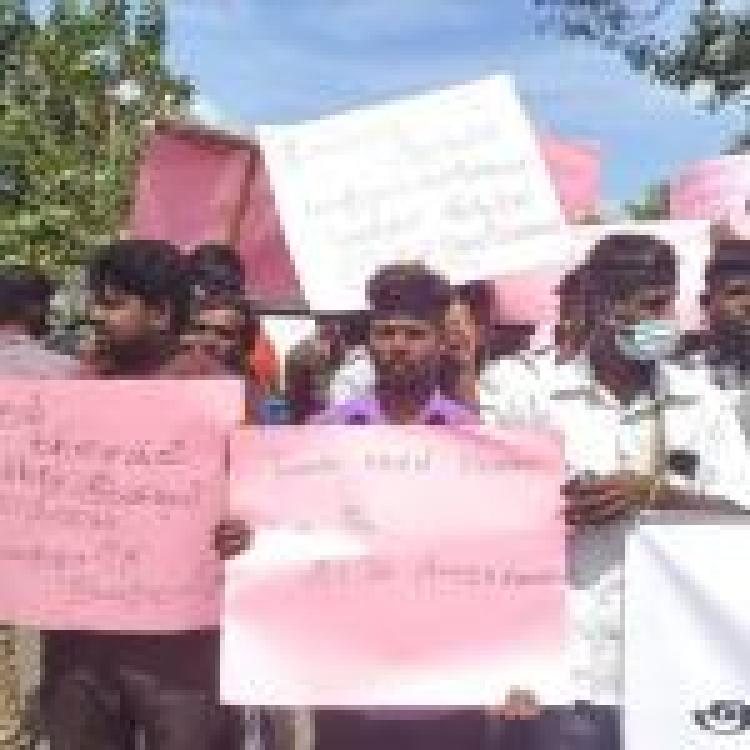
In a speech delivered in the Sri Lankan Parliament, Illankai Tamil Arasu Kachchi (ITAK) MP Shritharan Sivagnanam strongly condemned the government’s allocation of LKR 432 billion for defence in the 2025 budget.
Shritharan highlighted the lack of transparency in the budget, noting that while the total expenditure was LKR 4,218 billion, no details were provided about revenue sources. He criticised the government’s spending priorities, pointing out that 69% of the budget (LKR 2,898 billion) was allocated for recurrent expenses, leaving only LKR 1,320 billion for capital investment.
At the centre of his criticism was the LKR 442 billion allocated for defence, which accounts for 10.5% of the total budget. Shritharan questioned why such exorbitant military expenditure was necessary, despite the country not being in an active state of war for over 15 years. He stressed that Tamils in the North-East continue to suffer under military occupation, with unresolved land disputes, forced displacement, and land grabs facilitated by the security forces.
Jane's Defence Weekly Magazine noted that there was an overall 3% defence budget increase, which includes LKR60 billion allocated for ‘capital expenditure' including procurement. The army has received a 3% increase, the navy a 12% increase and air force a 4% increase, it notes.
Shritharan went on to warn that the island cannot achieve meaningful economic growth without addressing its deep-rooted ethnic and political issues. He quoted Anura Kumara Dissanayake’s own vision of a "clean, united, and prosperous" Sri Lanka, questioning how such a future could be realised without first fostering trust, fair laws, and genuine reconciliation.
The Tamil MP also dismissed the president’s call for the Tamil diaspora to return, stating that Tamils abroad remain sceptical, given that their fundamental demands remain unaddressed. He reiterated that Tamils seek to be recognised as a “separate national group” within Sri Lanka, as opposed to a marginalised minority with limited political rights.
Shritharan further criticised Sri Lanka’s economic failures, contrasting it with countries like Japan, South Korea, and Singapore, which had once looked to Sri Lanka as a model but have since far surpassed it in economic development. He pointed out that Sri Lanka now borrows from these very nations, while still refusing to adopt the inclusive governance models that helped them thrive. He also referenced Singapore, where Tamil is recognised as an official language, and questioned why Sri Lanka continued to deny Tamil equal status.
Citing historical agreements that sought to address Tamil grievances—such as the Bandaranaike-Chelvanayakam Pact (1957) and the Dudley-Chelvanayakam Agreement (1965)—Shritharan reminded Parliament that these commitments were abandoned due to Sinhala nationalist opposition. He also referenced the 1956 "Sinhala Only Act", which ignited decades of conflict by making Sinhala the sole official language and marginalising Tamils.
He questioned the credibility of Sri Lanka’s leadership, pointing out that Tamil faith in successive governments has only led to repeated betrayals. He recalled former Sri Lankan president J.R. Jayewardene’s infamous 1983 remarks:
“I am not worried about the opinion of the Jaffna people... if I starve the Tamils out, the Sinhala people will be happy.”
Ironically, Jayewardene later admitted on his deathbed in 1995 that federalism was the only solution to the ethnic conflict. Shritharan noted that Sri Lankan leaders have historically rejected power-sharing, despite making vague promises in election campaigns and peace talks—from the Premadasa-era negotiations to the 2003 Oslo-Tokyo process, and even Mahinda Rajapaksa’s 2010 power-sharing speech.
The continuous failure to address Tamil grievances, he argued, has kept Sri Lanka in a cycle of political instability and economic decline. He cited a 2016 statement by Colombo University lecturer Sarath Vijaya Suriya, who warned that:
“This is the most opportune moment to wield power through a new political structure, built upon fostering harmony through cooperation. If this opportunity is not seized to make a bold decision for the nation, the country will fall into regression.”
Shritharan also referenced Indian Prime Minister Narendra Modi’s 2015 speech in the Sri Lankan Parliament, where he declared:
“I am a firm believer in cooperative federalism.”
In his concluding remarks, Shritharan insisted that the island’s future depends on adopting federalism. He urged both Tamils and Sinhalese to work together as two distinct nations, building a stable and prosperous future based on genuine power-sharing.
By continuing to prioritise militarisation over reconciliation, he warned, Sri Lanka is dooming itself to further economic ruin and ethnic strife.




